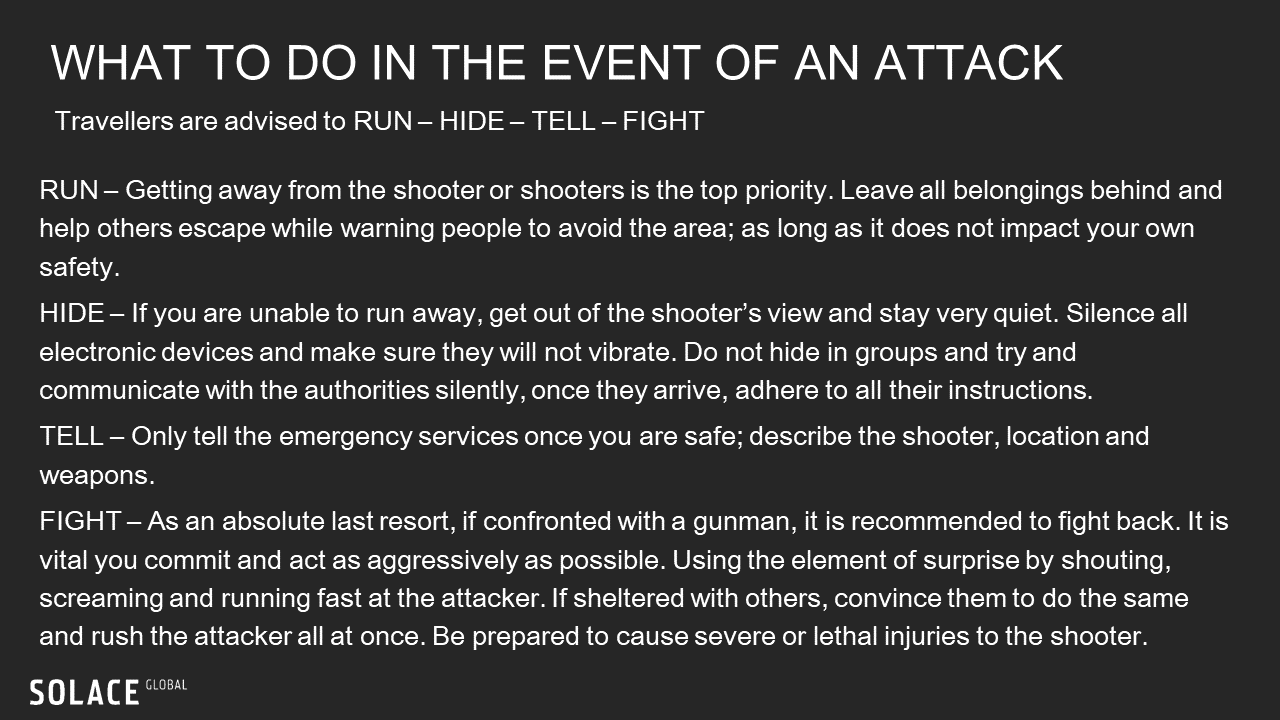Evacuations from High-Risk Locations Call +44 (0)1202 308810 or Contact Us →
Alert Plus – 81 killed in ongoing protests in Ethiopia

SITUATION SUMMARY: 81 Killed in Ongoing Protests in Ethiopia
At least 81 people have been killed in a wave of unrest that erupted in Addis Ababa, Ethiopia and the surrounding Oromia region following the murder of a prominent musician of the Oromo ethnic group.
The musician, Haacaalu Hundeessa, died on Monday in a targeted gun attack in Addis Ababa. On Tuesday, protests erupted in Ethiopia’s capital and in the Oromia state, as thousands of people took to the streets to express their anger over his death.
In Addis Ababa, demonstrators rallied in the streets, blocking roads, chanting slogans and brandishing Oromia flags. The protests resulted in clashes as police fired live ammunition to disperse large crowds.
Clashes between Oromo activists and other ethnic groups were also reported. Protests spread to other cities and towns in neighbouring Oromia region. Violent incidents were reported in Adama, Chiro, Dera, Shashemene, Jimma, and Nekemte.
On Wednesday, violence continued for the second consecutive day. Clashes reportedly broke out after a group led by Jawar Mohammed, a prominent Oromo leader and founder of satellite television channel Oromia Media Network (OMN), intercepted security officials transporting the singer’s body to Ambo and attempted to return it to Addis Ababa. Jawar Mohammed as well as Oromo Federalist Coalition (OFC) leader, Bekele Gerba, were among 35 people arrested during these clashes. Several injuries and one fatality were also reported.
Details remain scarce as, in a move to curb the protests from spreading, authorities shut down internet and telecommunication services.
The Ethiopian Military has been deployed nationwide due to the risk of continued protests over the coming days. At the time of writing, clashes are understood to be ongoing as a funeral service is held for Haacaalu Hundeessa.
SOLACE GLOBAL COMMENT
Ethiopia is a multi-ethnic nation that counts more than 80 diverse groups and over 200 dialects. Although these tribes have been coexisting for centuries, inter-ethnic conflict and violence are deep-rooted and clashes have occurred for decades.
Indeed, over the years, internal conflicts and the rise in communal violence have led to almost 3 million people becoming internally displaced. The country’s internal displacement figures are also the highest in Sub-Saharan Africa according to the IDMC.
The Oromo, the country’s largest ethnic group, which makes up a third of the population, have long protested and claimed to be marginalised. In 2018, Oromo-led anti-government protests resulted in the resignation of Ethiopia’s former Prime Minister and Abiy Ahmed’s subsequent rise to power. Even though the country is now under the administration of the first Oromo leader, Prime Minister Abiy Ahmed is still facing continuous ethnic tension and intra-state disputes across this diverse country.
In November 2019, 78 people were killed across the Oromia region in a chaotic wave of violence that began as anti-government protests but devolved into clashes fuelled by ethnicity and religion.
Haacaaluu Hundeessaa, a former political prisoner, was known for his resistance songs that focused on the rights of the Oromo ethnic group. Days before his assassination, he reportedly spoke on the Oromia Media Network, where he criticised the government and denounced the unlawful detention of Oromo activists. He was also the symbol of the 2018 anti-government protests that resulted in Hailemariam Desalegn’s resignation.
His assassination comes at a time of rising tensions due to COVID-19 restrictions and the government’s decision to postpone the country’s planned August parliamentary election. In the past, violence and unrest have escalated after the murder of Oromo activists and leaders. As such, there are mounting concerns that such unrest may now begin impacting the country again and, possibly, develop into ethnic clashes.
SOLACE GLOBAL ADVICE
- Be aware that demonstrations are currently widespread and may lead to a significant deterioration in the security environment.
- Large gatherings can escalate into violence with little or no warning. As such, avoid all gatherings or immediately vacate the area if caught in unrest.
- Be aware that it is likely security forces will continue to use aggressive measures against demonstrators, which has an incidental risk to bystanders.
- Additionally, ensure contingency measures are in place in case of a sustained period of instability occurs or if violence escalates. This includes evacuation plans.
- Allow for additional time when conducting journeys, protest action and the increased police presence may result in closed or blocked roads
- If travelling to or currently in Ethiopia, ensure that you monitor for the latest news for the progress of protests as well as monitoring any political developments.
- Be aware of the increased security presence, notably in the capital Addis Ababa and throughout the Oromo region. Adhere to any and all instructions issued by the security forces; opposition may result in a forceful response.
- Travellers are also advised to use travel-tracking technology with an intelligence feed. This should enable a traveller to be alerted of any security updates within their vicinity and to update others of their movements in case of an emergency.
- Be prepared for periods of limited access to internet and telecommunication services as access has been, and is likely to continue to be, blocked
Alert Plus – Six injured in knife attack in Glasgow

SITUATION SUMMARY
On Friday, 26 June, six people were injured in a knife attack at the Park Inn by Radisson Hotel in central Glasgow, Scotland, in the United Kingdom. A male suspect was shot dead by specialist firearms police officers at the scene.
The six victims are all being treated in hospital, including one police officer, who is said to be in a “critical but stable condition” after suffering knife wounds. Despite earlier reports of three fatalities, the only person killed is understood to have been the assailant.
Armed police teams were called to the hotel at around 12:50 local time after reports of a stabbing and arrived on the scene within two minutes.
Video footage showed armed police entering the building as several people emerged with their hands raised. Eyewitness immediately reported a number of casualties being evacuated on stretchers after police had cleared the building, fatally shooting the suspect. Residents were ordered to stay in their homes and lock their doors.
Scottish First Minister Nicola Sturgeon condemned the attack and stated that it was not being treated as terrorism-related at this time. Police have also stated that the incident is now contained and that there is no further threat to the public. Armed officers have sealed off part of West George Street amid the ongoing investigation.
The Park Inn Hotel had been housing a number of refugees and asylum seekers in recent months. The vulnerable individuals were rehoused from their previous accommodations to protect them during the COVID-19 pandemic. The motive of the attack remains unclear at this time, with media reports that the assailant may have been an asylum seeker.
The Scottish Police Federation has announced that an internal police review will be conducted into the circumstances of the incident, and the use of a firearm by an officer will lead to an investigation held by an independent commissioner.
SOLACE GLOBAL COMMENT
Knife attacks occur with some frequency in the United Kingdom, though incidents of this nature remain fairly uncommon. Less than a week prior to the Glasgow attack, another fatal stabbing incident occurred in Reading, where three people died from knife wounds in Forbury Gardens park.
The Reading attack, which was declared a terrorism-incident was the third major terrorist attack since the UK downgraded its official terrorism threat level from “severe” to “substantial”; meaning that attacks remain likely but there is no intelligence of an immediate risk to life.
While the most recent high-profile knife attack in Glasgow has not been designated as terror-related, though the investigation remains underway, and it remains possible, despite the announcement from Nicola Sturgeon, that the Glasgow attack may be reclassified as a terrorist incident.
Knife crime has become a hot-button in the United Kingdom. London, in particular, has gained notoriety for the high frequency of stabbing incidents.
Bladed instruments represent the weapon of choice for would-be attackers and criminals in the United Kingdom. Knives are easily acquired, with virtually no barriers to purchase, as opposed to hard-to-obtain materials such as explosives that require expertise to handle and set up, or firearms that are subject to strict control laws.
As such, knives have been utilised by terrorists to carry out multiple deadly attacks, such as the recent London Bridge attack of 2019. Such attacks are extremely difficult for the authorities to prevent, and they can easily be carried out by lone actors, normally in conjunction with vehicles used to ram passers-by.
However, as evidenced by the Glasgow attack, police and other emergency services are able to respond rapidly to such situations, limiting their potential to cause mass casualties.
SOLACE GLOBAL ADVICE
- Residual police cordons remain in place and disruption is likely in proximity to West George Street, Glasgow.
- As this is the second similar attack within a week, expect additional security throughout the city and the wider country, especially around parks, tourist spots and other potential targets. Adhere to all instructions given by law enforcement.
- Further copycat or similar attacks are possible; as such, maintain situational awareness when in public areas.
- Report any suspicious behaviour or activity to the authorities.
- Despite this, normal travel can continue.
- Monitor media and Solace Secure alerts for situational updates.
- Authorities have also asked the public to avoid speculation. Direct any relevant video footage or images of the attack to the police and avoid circulating it on social media
- If caught in a firearms or weapons attack, individuals are advised to follow the UK counter-terrorism policing advice of RUN, HIDE, TELL.
Alert Plus – Three killed following knife attack in Reading

SITUATION SUMMARY
On Saturday, 20 June, three people were killed and three others sustained severe wounds in a stabbing attack in Reading’s Forbury Gardens park (around 60 kilometres west of London).
Emergency services were called to the scene at approximately 19:00 local time following reports of multiple people being stabbed. Within minutes, they blocked several roads in the area and two air ambulances landed nearby.
A 25-year-old man, Khairi Saadallah, was chased, tackled and detained by police officers 5 minutes after the initial 999 call. He was then arrested on suspicion of murder. He was then re-arrested while in custody under Section 41 of the Terrorism Act 2000.
The incident occurred about three hours after supporters of the Black Lives Matter (BLM) gathered peacefully for a demonstration at Forbury Gardens. Police have announced that there was no connection between the two events.
On 21 June, the authorities declared the attack a terrorist incident and reported that counter-terrorism units and security services will support Thames Valley Police with the investigation. Moreover, it was confirmed that there was no credible threat or intelligence to suggest any further attacks.
Authorities also announced that they were not looking for any other people in connection to the attack, as intelligence suggested that the suspect acted alone. Preliminary reports indicate that the attacker is thought to be a Libyan national.
Chief Constable John Campbell, of Thames Valley Police, stated: “incidents of this nature are very rare, though I know that will be of little comfort to those involved and understand the concern that this incident will have caused amongst our local community”.
Residual police cordons and further operations to investigate the incident are possible in the Reading area in the coming days.
SOLACE GLOBAL COMMENT
Attacks of this natures, while rare, are not uncommon in the United Kingdom. This is the third major incident since the UK downgraded its official terrorism threat level from “severe” to “substantial”, which means that attacks remain likely but there is no intelligence of an immediate risk to life.
The most prominent driver of terrorist events in Europe, since the turn of the century, is Islamic extremism. While attacks in 2005, the 7/7 bombings, involved a series of coordinated suicide attacks targeting London’s public transport network, recent attacks have largely involved lone-wolf, low sophistication, knife and vehicle ramming attacks.
Indeed, in the past two years since the 2018 Westminster car ramming, knife attacks have become the most common form of terrorist attack in the UK, with a knife assault occurring in Manchester in December 2018, an attempted stabbing in January 2019, the 2019 London Bridge Stabbing in late November last year and an attack in Streatham, London in February 2020.
Normally, attacks of this nature are claimed by a terrorist group, or the attacker pledges allegiance in some way prior to the incident. At the time of writing, neither has occurred nor been uncovered by police, but investigations are ongoing.
In the aftermath of the event, armed Counter Terrorist Specialist Firearms Officers raided a block of flats in Basingstoke Road in Reading where the suspect was reportedly living. As such, further information regarding Khairi Saadallah’s motives is likely to be disclosed in the coming days and weeks.
It has also been reported that the suspect, who is understood to originally be from Libya, came to the attention of the Security Service (MI5) last year. According to media sources, MI5 had received information that Saadallah had aspirations to travel abroad, potentially for terrorist training. However, it is understood that upon further investigation, no genuine threat or immediate risk was identified and no further action was taken.
SOLACE GLOBAL ADVICE
- Residual police cordons remain in place and disruption is likely in proximity to Reading’s Forbury Gardens park.
- Expect additional security throughout the town and the wider country, especially around parks, tourist spots and other potential targets. Adhere to all instructions given by law enforcement.
- Further copycat or similar attacks are possible; as such, maintain situational awareness when in public areas.
- Report any suspicious behaviour or activity to the authorities.
- Despite this, normal travel can continue.
- Monitor media and Solace Secure alerts for situational updates.
- Authorities have also asked the public to avoid speculation. Direct any relevant video footage or images of the attack to the police and avoid circulating it on social media
- If caught in a firearms or weapons attack, individuals are advised to follow the UK counter-terrorism policing advice of RUN, HIDE, TELL.
The UK government states that the terror threat level is “substantial”, meaning a terror attack is likely. Islamist extremists continue to view the UK as a legitimate and high-profile target for attack. Terror attacks in the UK are likely to be perpetrated by self-radicalised individuals using low-tech means, such as knives and vehicles. Attacks could occur with little warning and may be indiscriminate.
International Women’s Day 2020 – The Rise of the Female Business Traveller.

There has been a significant rise in the number of women travelling for both business and personal reasons in recent years, an estimate of $125 billion is to be spent on travel by women in 2020 alone(1). Regardless of the different situations and incidents going on within the modern world, women are not averse to travelling. Even with the enhanced media attention of risks to females travelling abroad, various studies showing that women are travelling now more than ever.
This figure is only going to grow throughout the coming years, representing a cultural shift that is beneficial for businesses globally. Travelling is very popular amongst women and we see this reflected by our own clients with more and more women conducting business trips each year, varying from short visits to Europe and the US to more complex journeys in Africa or Asia. Therefore, Solace Global want to celebrate the fact that female travel is becoming more frequent and to offer our travel safety tips.
Ensuring personnel safety worldwide is one of our top priorities, and we cannot stress enough the importance of companies considering and preparing for all the unique threats that female travellers can face when abroad. According to a study by SAP Concur, 52% of business travellers cite travel safety as the most valuable training their company could provide(2), at Solace Global we offer specific country advice and a range of safety training courses for all travellers, a vital element to making sure your employees are empowered with travel confidence.
Certain countries can be recognised as particularly ‘high risk’ and lone female travellers will need to review various country specific and more generalist aspects when conducting business trips in order to stay safe, for instance understanding the local laws and cultural norms. Women are often treated differently to men and therefore it is highly important that these factors are studied and accounted for before commencing a trip e.g. if travelling to a Muslim country, women must cover shoulders and wear clothing that covers just below the knee.
More than 3 in 4 (77%) female business travellers have had a negative experience related to their gender(3) highlighting the importance of pre-travel planning and country-specific research. While many of the risks affect travellers regardless of their gender, male travellers are seen as less vulnerable, meaning women are more likely to become a target. According to a recent survey by YouGov and Tourlane(4), 46% of women are concerned about their safety when travelling solo, compared to only 20% of men, highlighting the perceived risk women face.
There is no escaping that there will always be an element of risk when travelling regardless of who the traveller is; male or female. However, as long as a person and their company are aware of the risks that they may face, and these are mitigated as far as possible, there is no reason that anyone should not conduct an enjoyable and safe trip.
This is important because the last thing travellers want to do while on a trip is to be constantly worrying and making continued threat assessments about their surroundings while doing what they actually came to do.
There are a number of things that both travellers and company risk managers can do to ensure that female business travellers can conduct their business safely and successfully. These include preparation before and actions during their journeys.
Advice for the travellers
- In the majority of cases, common sense precautions, such as dressing conservatively, avoiding travelling alone after dark in unfamiliar places and watching your drink at the bar, will keep you safe.
- Do not be too trusting, do not accept food or drinks from strangers or be accepting of lifts.
- Always ask the hotel receptionist not to verbally announce your room number and ensure they don’t give you a ground floor room or one at the end of a dark corridor / by an external fire escape, feel free to ask for an alternative room if it does not feel right.
- Ensure your hotel has double-locking doors and that both work before unpacking.
- Consider carrying two doorstops to place under the door when you are in your room, or a device such as a DoorJammer, to provide extra security for your room.
- Research your destination before you travel, be aware of the safer areas, the places to avoid and any other things to look out for.
- Be aware of the cultural sensitivities in the country you are visiting. For example, reporting sexual assault in the United Arab Emirate can result in the victim being detained and even charged.
- Cultural sensitivities can extend to how you dress, whether or not you should initiate handshakes and even the length of eye contact.
- Ensure that someone knows where you are travelling to; be this friends, family or work colleagues. Additionally, ensure that you check in regularly with this person.
- Certain hygiene products can be difficult to buy in some countries; it is advisable that, where possible, you bring your own.
- If feeling harassed or receiving unwanted attention while in a bar or a club, do not hesitate to tell the staff. They will be able to help you and call a taxi for you to safely leave the premises.
- One of the best ways to avoid harassment is to say you have a boyfriend/you are married to avoid unwanted attention. Consider wearing a fake wedding ring.
- If confronted with an uncomfortable or threatening situation, attempt to leave, otherwise, try to attract attention to yourself and call for help.
- It’s always a good idea to talk a female friend or colleague that have travelled to the country you plan to visit to find out about issues they may have encountered.
Advice for travel managers
- Travel managers already know they need to focus on safety as more women travel for business; however, this needs to translate into specific changes to travel policies, consider including pre-travel female specific briefs, regular check-in monitoring, and a female traveller training course.
- Global travel policy should reflect the diversity of your travellers; different locations and different travellers will all have varying risk profiles which should all be respected.
- Companies should be able to account for their employee’s whereabouts at all times; this is especially true in more high-risk locations.
Solace Secure: Now Compatible with What3Words

The new initiative, what3words, is a simple way to talk about your current location. It has given each 3m square in the world a unique 3 word address, meaning you can refer to any precise location with just three words, no co-ordinates necessary.
Although our travel tracking app, Solace Secure, allows you to pinpoint your current location, at Solace Global Risk we are able to simplify the emergency response process by sharing your what3words with local emergency services who can easily identify your exact location. Whilst we can still provide your co-ordinates, many in country providers are now working to use what3words to improve accuracy and speed in responding to your requests.
With the what3words map overlay you have the option to view associated three-word addresses across the globe. It is a strong development to have the ability to use additional methods to communicate an individual’s location during an emergency, aiding response. If you are already familiar with the function and call into our operations centre wishing to use a code address our response team will be able to continue to support you.
To find out more about what3words visit: https://what3words.com/about-us/.
Solace Global Supports Aldo Kane in Tigers: Hunting the Traffickers

Tigers: Hunting the Traffickers In a new one-hour documentary from Grain Media, former Royal Marines Commando, Aldo Kane exposes the secrets of the illegal tiger trade in South East Asia. Aldo Kane has turned his hand to providing safety measures for film and television productions in extreme environments, under his company Vertical Planet. In his latest production Aldo goes in front of the camera in a covert operation to film tiger traffickers across South East Asia.
‘I had used Solace Global before operationally on the ground in South America during the filming of “Drug Lords with Jason Fox” and knew the level of support was second to none. There are few companies who can be as flexible, reactive and understanding to the sensitive needs of filming in hostile/high risk environments. With this knowledge and experience there was no other choice for the operational overwatch for the filming of “Tigers – Hunting the Traffickers’

@GrainMediaLtd Tigers are trafficked often for the production of illegal produce, such as tiger-bone wine and glue, the reason for this is that many of these products are believed by the people of Asia to have medicinal values. Aldo journeys across Malaysia, China, Thailand, Laos and Vietnam for the duration of the documentary uncovering the secrets of tiger trafficking. Once filming had finished Aldo moved onto Geneva where he took his investigation and evidence to the Convention on International Trade in Endangered Species (CITES) in order for decision makers to discuss making a change to this illegal trade. With filming crews in remote areas and the need for discretion, Solace Global managed an enhanced monitoring and support service that included the provision of (inSIGHT) services*, including pro-actively communicating real-time vicinity incidents and tracking of the team’s movements. The team had scheduled check in’s and a comprehensive response protocol plan. This proactive capability along with access to Solace Global tracking platform (Solace Secure), provided the team with vital intelligence to mitigate the risks. *inSIGHT (Security/Intelligence/Guidance/Help/Tracking) ensures your people and assets are in constant view of the Solace 24/7 response team. Our pro-active monitoring service will monitor your personnel and assets for you and respond to vicinity risks and incidents. InSIGHT forms part of our Protect series of services which also includes, Tracking & Technology (Solace Secure), Journey Management, Executive Protection & In-Country Security, Crisis Management, Evasion and Response Services.

In the event of an emergency, Solace Global’s vetted in-country support teams would be able to provide the necessary and appropriate level of assistance. Combining in-country physical assistance with intuitive travel tracking technology and robust response protocols. As part of the reaction and response plan, Aldo and his team had access to Solace Global’s tracking capabilities and online platform, Solace Secure. The app functionality enabled the teams to ‘check-in’ when scheduled and if asked at any time, this is crucial when an incident occurs within the vicinity. The Solace Secure app also provided the ability to hit an SOS alarm which would notify the necessary support team’s in-country and back at Solace Global HQ. This functionality was not just key for Aldo and his team but also the in-country fixers who had to liaise with members of the illegal trafficking trade. The ability to discreetly raise an SOS alarm pinpointing the user’s location was paramount to mitigating against the risks filming involved. Aldo conducted a series of tracking sessions on the Solace Secure app giving our response team access to Aldo’s current location enabling us to quickly respond with assistance direct to his location should it be required. The tracking session showed the routes in which Aldo and his team took, in turn it highlighted the routes taken by much of the traffickers. Whilst working in remote areas there were times the team needed to rely on GPS tracking devices. The Solace Secure platform is able to take a feed from such devices to allow us to continue to monitor the team as they moved through the wildlands.

@GrainMediaLtd Tigers: Hunting the Traffickers has been commissioned for BBC Two and will be show on Wednesday 4th March 2020. The executive producer Monica Garnsey at Grain Media, executive producer Roger Webb at the BBC and Laura Warner as director. View the trailer here: https://www.bbc.co.uk/mediacentre/latestnews/2020/tigers

@GrainMediaLtd As a trusted supplier to major media broadcasters, Solace Global understands the extensive risk management needs of media organisations providing enhanced intelligence, check-in monitoring, overarching support through Solace Secure plus 24/7 Response Assistance and Crisis Management. Click for further information About Us or Our Services
US-Iran tensions escalate in Iraq
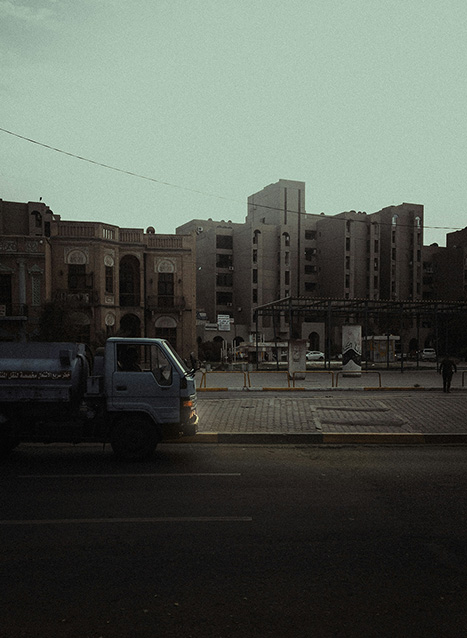
SITUATION SUMMARY
On 3 January, the Pentagon confirmed a targeted airstrike had been conducted at Baghdad International Airport. The target of the strike was one of Iran’s most powerful commanders, General Qasem Soleimani, who spearheaded Iran’s elite Quds force and their operations throughout the Middle East. The airstrikes resulted in seven killed, including the deputy commander of the Iraqi Popular Mobilization Forces (PMF), Abu Mahdi al-Muhandis.
The Pentagon has attributed numerous attacks on coalition bases in Iraq in recent months to the Iranian General, and conducted the airstrike as a “decisive defensive action to protect US personnel abroad” and to deter “future Iranian attack plans”. The Green Zone in Baghdad was locked down by Iraqi security forces after the attack to prevent further immediate escalations in tensions. There were reports of celebrations in Tahrir Square by anti-government groups in Iraq, who by and large oppose Iranian involvement in Iraqi affairs.
Iran has responded calling the airstrike an “act of international terrorism” and a “foolish escalation” amid current tensions between the two powers. The Iranian government has indicated that it considers the US strike to be a targeted assassination and that it will retaliate. Three days of national mourning have been announced in Iran.
The Iraqi Prime Minister has stated he considers the assassination of Muhandis an “attack on the Iraqi state, government and people”. The Pentagon has confirmed that US President Donald ordered the strike in response to intelligence suggesting that Soleimani was planning attacks against US forces; the deployment of approximately 750 US soldiers to the Middle East had already been announced but may be increased.
SOLACE GLOBAL COMMENT
The assassination airstrike occurs in a context of escalating reprisal actions in Iraq between the US and Iran. On 29 December 2019, a coordinated series of US airstrikes in Iraq and Syria targeted Iran-backed Iraqi militia group Kataib Hezbollah (KH), part of the Iraq’s Popular Mobilisation Forces (PMF), killing at least 25 militants. These strikes followed the death of an American contractor when dozens of rockets, fired by KH, hit an Iraqi military base. In response, the KH leadership vowed a robust response targeted at US forces in Iraq. The Iraqi government strongly condemned the airstrikes, characterising them as a violation of sovereignty.
Protests were sparked on 31 December outside the US Embassy compound in Baghdad’s ‘Green Zone’ following the funerals of KH fighters who had been killed. Supporters of KH and other Shi’ite PMF units rallied outside the embassy. Protesters attacked the compound, breaking down the gates and setting fires at the facility, forcing the withdrawal of all but security staff who fired tear gas. The demonstrators remained in place until 1 January when, following the deployment of hundreds of additional US troops to the embassy compound, they withdrew.
The assassination airstrike represents a significant escalation and is likely to provoke a strong reaction both from Iran and its proxy forces in the Middle East. There is heightened potential for a resumption of anti-Western protests in Baghdad, along with an upsurge in Iranian-backed militant activity regionally. The US Defense Secretary has stated further militia attacks are expected and the US reserves the right to take preemptive action to prevent them. In the midst of Iranian and US actions, Iraq remains fragile with a fractured political and sectarian society, and a growing concern of a resurgence of extremist groups, such as the Islamic State. There is a strong likelihood Iraq will become more unstable in the coming days and weeks.
SOLACE GLOBAL ADVICE
- The security situation in Iraq remains unstable and may deteriorate quickly.
- Ensure robust contingency plans are in place, and that evacuation actions are reviewed.
- Monitor media and Solace Secure alerts for developments and remain up to date; diplomatic service support may be delayed or disrupted so plan accordingly.
- Heightened security measures should be anticipated regionally in areas around government buildings and transport hubs such as airports; check the flight status before departing for the airport and do not check out of accommodation until onward travel is confirmed.
- It is recommended to avoid all political gatherings and rallies in the region, whether planned or spontaneous. If in an area of spontaneous unrest, it is recommended to leave the area immediately and seek a secure shelter or refuge.
- If in the general area affected by airstrikes, remain in doors, away from windows and doors and if possible, move to the ground floor or basement.
Earthquake in Southern Philippines – Alert Plus
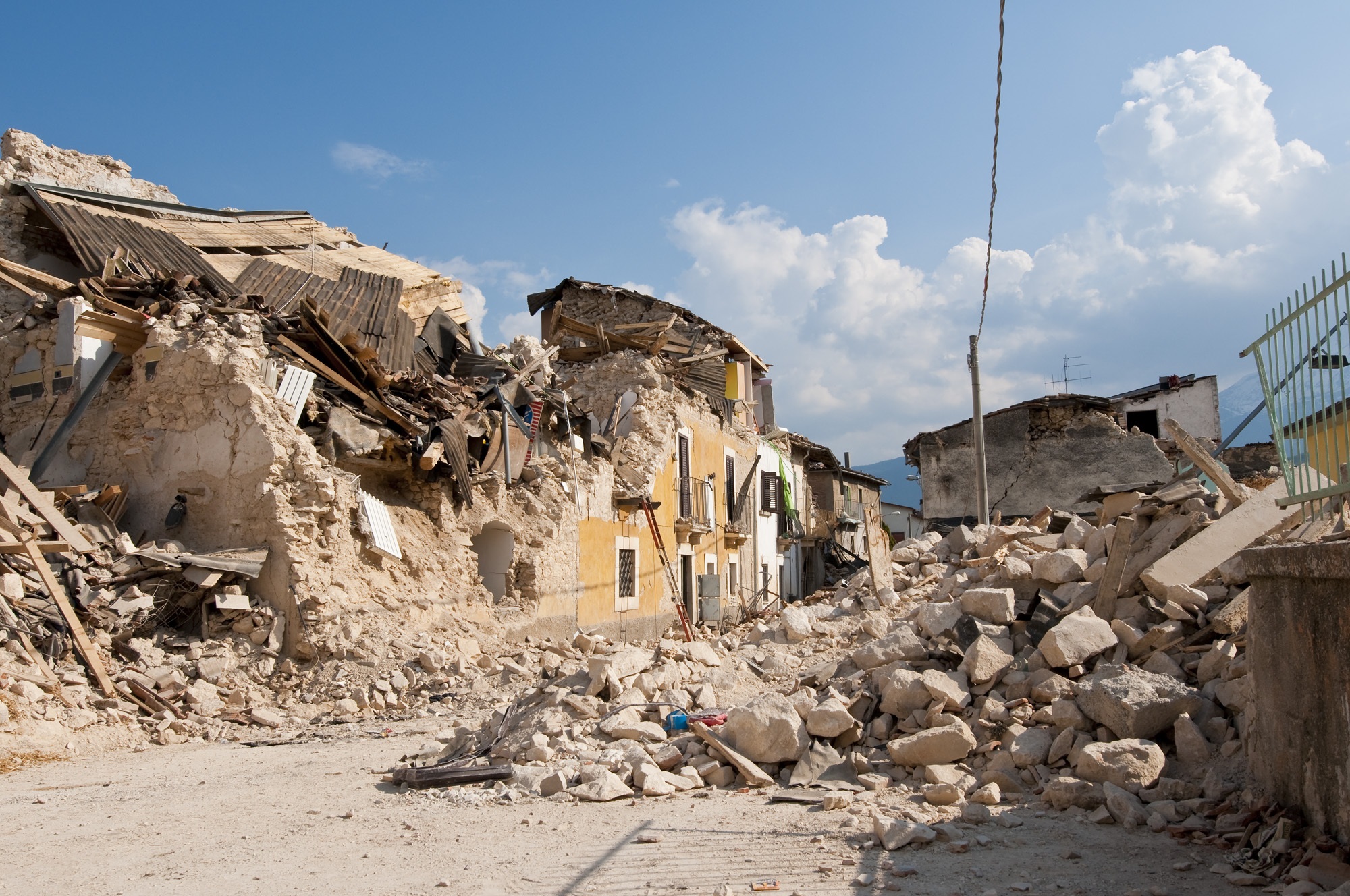
SITUATION SUMMARY
On 15 December, at approximately 06:00 UTC, a magnitude 6.8 earthquake was recorded six kilometres south of Magsaysay, southwest of Davao on the island of Mindanao. The earthquake measured a depth of 22.4 kilometres and was felt across Davao del Sur, North Cotabato, South Cotabato and Sarangani provinces.
The majority of casualties and damage were reported in the Davao del Sur province. Initial figures show that at least five people were killed in Digos and Padada, where a three-storey building collapsed leaving several people trapped under the rubble. In the town of Matanao, a six-year-old child was killed after a house collapsed. An undetermined number of people were also injured, mostly near the epicentre in Magsaysay.
The quake also resulted in power outages in the affected areas, including the General Santos Airport (GES). Footage released on social media also showed an electrical transformer exploding in the city of Davao.
In the aftermath of the event, the Pacific Tsunami Warning Center did not issue any tsunami warning. However, the Philippine Institute of Volcanology and Seismology (Phivolcs) warned of further aftershocks. At the time of writing, at least 10 strong aftershocks were recorded, with the strongest being a 5.7 magnitude, centred south-southwest of Sulop at 06:52 UTC.
Relief operations are underway and further reports of casualties and damage are to be expected over the coming hours and days. At the time of writing a number of people remain missing.
SOLACE GLOBAL COMMENT
The Philippines is one of the most disaster-prone countries in the world. According to the Global Facility for Disaster Reduction and Recovery (GFDRR), the highest environmental risks in the country are landslides, tsunamis, volcanoes and cyclones. However, due to the country’s location along the so-called Pacific Ring of Fire, the Philippines is also prone to strong deadly earthquakes that often result in substantial damage.
Between October and November, Mindanao island has been hit by multiple and intense earthquakes, which led to casualties and considerable damage, notably in Davao del Sur and Cotabato provinces. On 29 October, a magnitude 6.6 earthquake struck14 kilometres east of Bual, killing at least ten people and damaging buildings and infrastructure, which had been already weakened by a 6.3 magnitude foreshock approximately ten days earlier. On 31 October, a 6.5 magnitude aftershock was recorded south of Kisante; the death toll was then raised to 24, at least 500 were reported injured and dozens are still missing. In the aftermath of these events, experts stated that tremors would occur until December. Since the Cotabato earthquake swarm, more than 349,000 people have been in need of assistance and 58,000 have been living in evacuation shelters, makeshift shelters and even open spaces.
These recent tremors are likely to have worsened the current humanitarian situation. Moreover, given the extensive damage to infrastructure and utilities, a long-term population displacement is anticipated.
SOLACE GLOBAL ADVICE: What to do after an earthquake?
-Anticipate aftershocks. These can greatly change in magnitude and can sometimes be more intense than the initial tremor itself. It is recommended to adopt the same safety measures, including “drop, cover and hold”, should these occur.
-Check if you are injured and help others if you have been trained to do so.
-If you are trapped, it is important to remain calm and try to use any means to call for help.
-Do not enter any damaged buildings, as further shocks may result in more damage to already weak structures.
-If currently in a damaged building, move away and not re-enter until the authorities confirm it is safe to do so.
-Once you are safe, monitor media (and Solace Secure) updates for emergency information and instructions. Follow all the advice issued by the local authorities.
-In the aftermath of strong earthquakes, there can be several hazards. Check your surroundings for gas leaks, broken water pipes, damaged wires, hazardous materials or broken glass.
-If possible, wear protective clothing and sturdy shoes to prevent injuries. Maintain situational awareness at all times.
-Abide by all instructions issued by the authorities.
-Be prepared for disruption (possibly extensive) in the region as a result of the earthquake.
SECURITY SUMMARY: The Philippines
In addition to the seismic risk in the region, it is important to note that Mindanao suffers from a significant threat of Islamic terrorism. The risk of attacks is higher in the southern Philippines and the island of Mindanao specifically, where a number of terrorist organisations are still active. These include Aby Sayyaf (an Islamic State affiliate), the Maute group, the New Peoples Army (NPA), Jemaah Islamiyah, and Bangsmoro Islamic Freedom Fighters. Reports indicate that clashes between militants and government forces are frequent in the remote areas of Cotabato and Davao del Sur provinces. Attacks and kidnappings can occur across the Philippines and target foreigners, institutions and security forces.
Following an attack on government facilities by ISIS insurgents, martial law was imposed in 2017 and will remain in place until at least the end of 2019. Moreover, following the earthquakes in October and November, the Department of National Defence heightened the security measures in the affected provinces. These include the presence of checkpoints to ensure the safety of the people living in evacuation centres.
Crime is a significant concern and the most reported common types are theft, assault, robberies and gang-related crimes. Certain areas present a higher risk; these include Sarangani Province, North Cotabato Province, South Cotabato Province, General Santos City, Sultan Kudarat Province, Lanao del Sur Province, Lanao del Norte Province and Iligan City.
As such, due to the high rate of criminality and ongoing insurgency, travellers to the Philippines should consider the use of enhanced security measures. This includes the use of prearranged airport meet and greet services and a locally-vetted driver. Furthermore, the use of travel-tracking technology, supported by a live intelligence feed, is also recommended in order to keep abreast of security developments whilst in-country.
New Zealand Eruption – Alert Plus
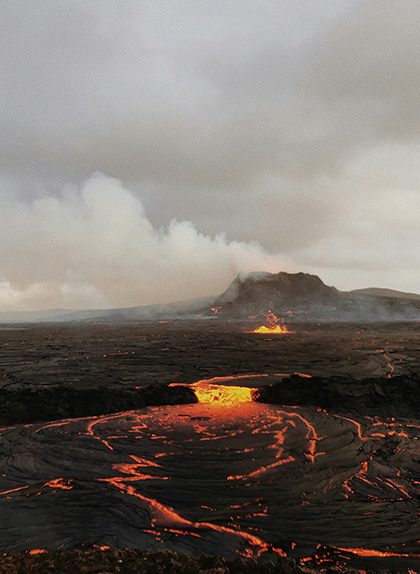
SITUATION SUMMARY
On 9 December, at approximately 14.30 local time, the Whakaari/White Island Volcano in the Bay of Plenty erupted, sending a large plume of smoke into the sky.
Authorities reported that up to 47 people, including New Zealanders and foreign tourists, may have been on the island when the eruption occurred. At the time of writing, six fatalities have been confirmed while 30 people have been rescued, some with critical injuries.
However, the death toll is expected to rise as a number of people remain unaccounted for, with search and rescue operations still underway to assess the exact number of fatalities. New Zealand police deputy commissioner has stated though that emergency personnel have been not able to access the island, which is covered in ash, as the current situation is unsafe due to the potential of further eruptions.
The Defence Force (NZDF), who have been called in to provide assistance, are expected to deploy drones to assess the situation as soon as possible, however, reconnaissance flights, carried out by police rescue helicopter and NZDF aircraft, showed no sign of life on the island.
Prime Minister Jacinda Ardern arrived in the town of Whakatane, the nearest on New Zealand’s North Island to meet with council leaders. During a press conference, the Prime Minister stated that she will be travelling to White Island on 10 December. Police are also said to be investigating the eruption, but have stressed this is on behalf of the Coroner and is not a criminal investigation at this time.
A magnitude 5.3 earthquake has also struck off the coast of New Zealand’s North Island less than 24 hours after the eruption. There is also a reported 50 percent chance of a secondary eruption, hampering rescue efforts.
SOLACE GLOBAL COMMENT
White Island, also known as Whakaari in the Maori language, is New Zealand’s most active volcano and has been built up by continuous volcanic activity for over 100,000 years. In 1914, a fatal eruption killed 12 people. The most recent eruption prior to the 9 December eruption, a short-lived eruption occurred in April 2016, though no fatalities were reported then.
Despite the volcano’s activity, it has been a popular tourist destination in recent years with numerous tours available. Reports indicate that most of the people on the island at the time of the eruption were passengers of the cruise vessel Ovation of the Seas, visiting Tauranga.
White Island’s eruption wasn’t completely unexpected. Academics have previously expressed their concerns over the suitability of the island as a tourist destination, with official reports showing that volcanic unrest has been occurring for several months prior to the disaster. In November, the New Zealand hazard monitoring site, GeoNet, reported a period of unusual volcanic activity, and raised the alert level for the island.
While relief operations are underway, GeoNet has taken its live cameras on White Island off its website. Additionally, many tour agencies that operate in the area uploaded their “dark sites” with updated contact information and details of the emergency.
During the eruption, a large plume of white smoke was visible from the mainland. Airlines in New Zealand confirmed that flight operations have not been affected at this time; however, an orange aviation colour code warning was issued due to hazardous ashfall. Additionally, a no-fly zone in the area was put in place due to the threat of further eruptions.
SOLACE GLOBAL ADVICE
-Further large eruptions cannot be ruled out in the coming hours, days and even weeks. Avoid the vicinity of White Island
-Individuals should listen for, and follow, any emergency information and alerts issued by the local authorities, as well as monitor local media for updates. The Ministry of Civil Defence & Emergency Management website has information available here.
-While unlikely at this time, a large follow-up eruption may result in evacuations on the nearby north coast of North Island. Individuals in the immediate area are advised to have an emergency supply kit prepared with the necessary supplies should they need to evacuate at short notice.
-Effects of a volcanic eruption can be experienced many kilometres from a volcano. Individuals near the affected area are advised to be aware of the potential for ashfall; this can be a health hazard notably if suffering from pre-existing breathing difficulties. In the event of ashfall, wear respiratory masks as well as suitable clothing to protect the skin.
-An emergency operation centre has been set up at Whakatane Hospital, the closest town to the island in the Bay of Plenty. Road closures were reported in Whakatane. As such, travellers must avoid designated restricted zones.
-Airports remain open but flight operations might face delays or cancellations should further eruptions occur.
Bolivia: President Seeks Asylum in Mexico amid Protests

SITUATION SUMMARY
Evo Morales has resigned as the President of Bolivia on 10 November and, a day later, the ousted president accepted political asylum in Mexico and departed from the country, being transported to the airport by military helicopter. Along with the president, numerous senior officials have also resigned.
The president’s decision to step down is reported to come after the interventions of the chief of the armed forces, General Williams Kaliman. The general urged Morales to step aside in the interests of peace and stability.
Bolivia’s military commander has also ordered troops to back up police following recent clashed with Morales supporters – clashes that resulted in some 20 injuries. The supporters were following Morales call to “resist” the “dark powers” that had forced him to step down.
The unrest has resulted in disruptions to flights in recent weeks, particularly at El Alto airport in La Paz. Additionally, travel throughout the country has been made difficult by the protest.
The resignation has left a number of questions about what is next for Bolivia, with many fearing a prolonged period of unrest, uncertainty over the next president and even claims of a coup.
SOLACE GLOBAL ANALYSIS
The president’s ousting has left the security situation in Bolivia extremely volatile and uncertain. Morales, who had been in power since 2006, had won plaudits for fighting poverty and improving Bolivia’s economy but drew controversy by defying constitutional term limits to run for a fourth term in October’s election, the initial spark of the current crisis.
The election was alleged to have been rife with “irregularities”. Indeed, an audit of the results by the OAS said it had found “clear manipulations” in the country’s voting system and that it could not verify the result of the 20 October election. The announcement coincided with General Kaliman’s call for Morales to resign.
The president’s resignation has left the country in chaos, with Morales supporters and adversaries clashing on the street in recent days and his departure failing to pacify the demonstrations. The power vacuum left by his resignation has also left numerous questions regarding the political future of the country and whether this will result in an unsolvable political crisis, with the political and military establishment fighting over power.
Unless the military and police are able to restore order, it is a very real possibility that the country may now see a period of sustained unrest. Business continuity and travel are going to have to be altered for the foreseeable future until at least fresh elections are held.
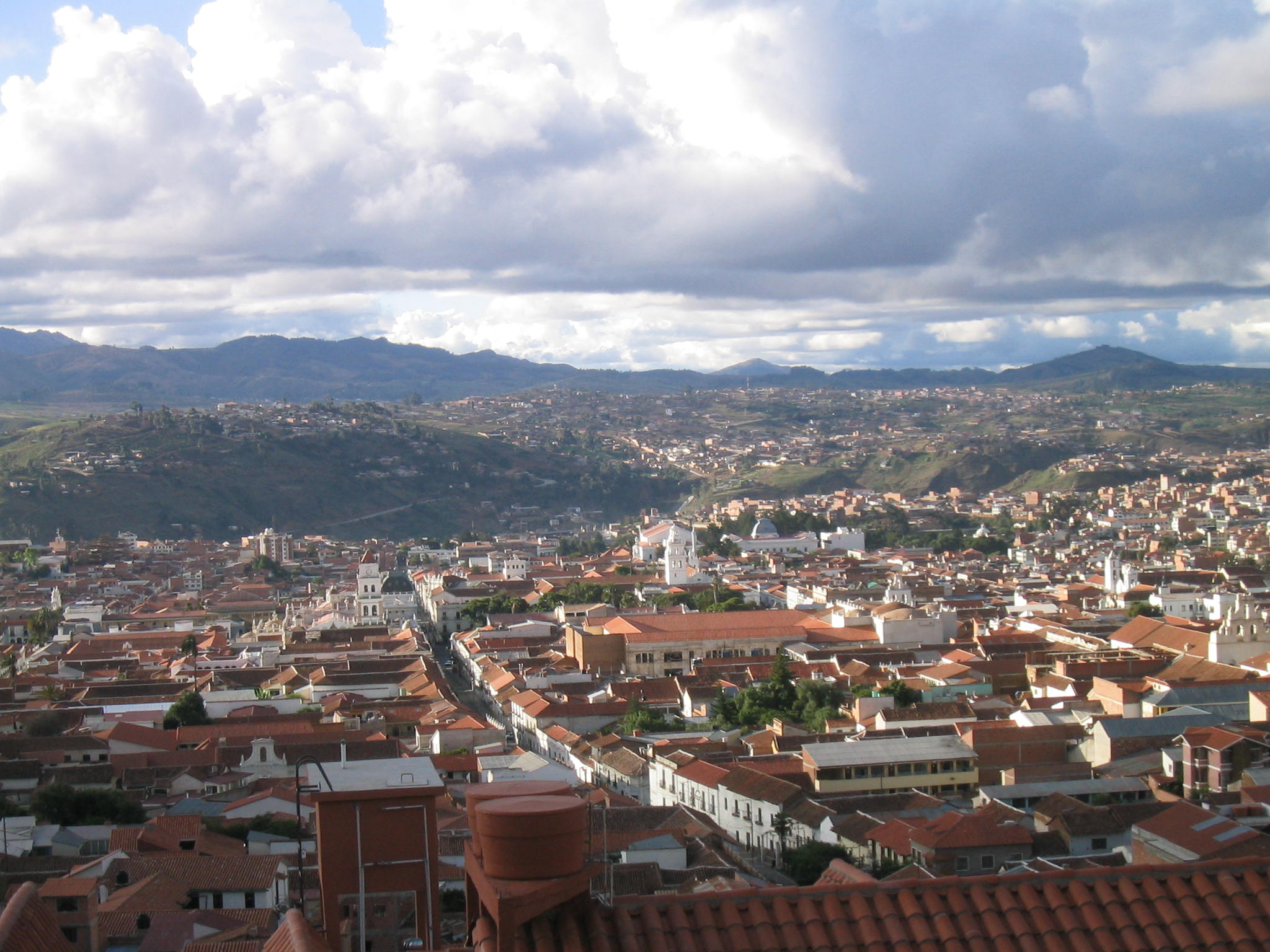
ADVICE
- Multiple government foreign offices have advised against all but essential travel at this time.
- Those in country should review their itineraries and consider departing the country at their earliest convenience.
- Businesses should consider evacuating non-essential staff at this time.
- If in need of urgent assistance, those in country should contact their embassy.
- The disruption to airport operations has made planning travel in and out of the country difficult. Thus, travellers and businesses should ensure to have flexible itineraries.
- Both travellers and businesses should continue to monitor local and international media reports regarding the unrest and plan accordingly.
- Minimise movement in country, avoid locations impacted by the unrest.
- Do not travel at night and ensure you have a robust journey management plan in place if travel is essential.
- Keep all identification documents on you as well as a fully charged phone and a spare battery pack.
Diwali 2019 and Relating Travel Risks
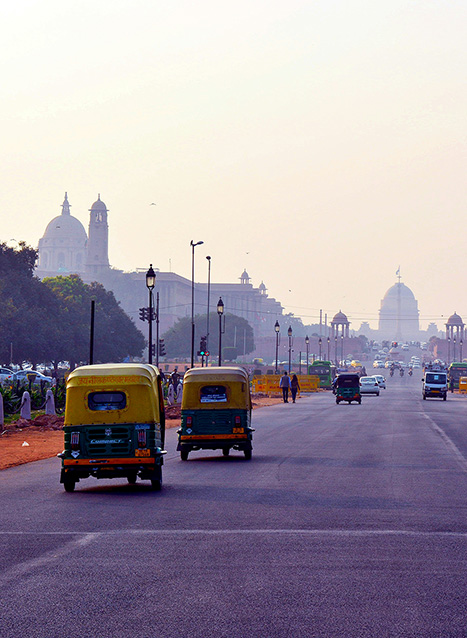
SITUATION SUMMARY
Diwali, also know as Deepavali, is the annual Hindu festival of light that celebrates the spiritual victory of good over evil, and light over dark. In the days leading up to and during the festivity, people decorate their homes with colourful decorations and oil lamps, called diyas.
Festivities last for five days and the date is calculated according to the Hindu lunar calendar. This religious festival also marks the beginning of the Hindu New Year and it usually falls between October and November; this year’s date is Sunday 27 October.
Diwali is celebrated largely in India (mainly in northern regions) where it is the most important holiday on the calendar, originating as a harvest festival. Each region has its own traditions and practices as well as deities, though, some elements are common everywhere.
In India, the most popular places to experience Diwali are Delhi, Jaipur, Amritsar, Varanasi, and Kolkata. The festival of light is also observed in Bali, Fiji, Guyana, Pakistan, Malaysia, Mauritius, Myanmar, Nepal, Singapore, Sri Lanka, Suriname and Trinidad & Tobago. Public events also take place in countries that have a large Indian population such as the United Kingdom and on many Caribbean islands.
SOLACE GLOBAL ANALYSIS
Although Diwali is considered peaceful and is popular among various cultures there do remain several potential risks.
The most prominent threat to travellers is petty criminality. During festivities, the large crowds allow pickpockets to operate freely.
Environmentalist demonstrations against the tradition have occurred in the past over the amount of smog that the number of firecrackers produces. Despite this, protests are normally small in size and often cause minimal disruption, especially when compared to the actual event. Minor injuries from stray crackers have been reported over the years.
Due to the event’s high-profile nature, there is a risk that terrorist groups may target festival celebrations. While terrorist groups mainly focus attacks on the Indian government and Indian military personnel, attacks on areas frequented by westerners and religious festivals cannot be ruled out. Diwali festivities last fell victim to such attacks in 2005, attacks were also attempted and foiled in 2011.
On 23 September 2019, local media reports stated that insurgent groups from Jammu and Kashmir and Pakistan were planning to target this years Diwali, these reports have not been verified by official sources at this time.
WHAT TO DO;
- Travellers to India are advised of the ongoing threat of terrorism. Terror attacks occur with little warning and often with indiscriminate targeting. As such, individuals should take particular care in the days leading up to and during Diwali. It is important to maintain situational awareness and report anything suspicious. – In the event of an attack travellers should follow the advice of RUN – HIDE – TELL – FIGHT.
- Travellers should also be aware of an increase in regional travel disruption both during the event and up to two weeks following. Diwali is followed by school holidays; overcrowding and congestion are a regular feature during this time.
- Large crowds should be avoided as much as possible. While they may initially seem peaceful, there is the potential for gatherings of this kind to escalate into stampedes and potential violence.
- Pickpockets can operate in crowded areas, keep an eye on your belongings and avoid overt displays of valuables.
- Diyas and fireworks are prominent during Diwali and part of the celebrations. Many people have reported receiving burn injuries and some clothing and textiles such as ‘dupattas’ or Indian scarves can easily catch fire.
- Travellers are advised to wear earplugs as some crackers are extremely loud and sound more like explosions.
- Given the gatherings of millions of people during this period, all travellers should employ enhanced medical and hygiene measures.
- The bursting of firecrackers worsens air pollution levels; the smog hangs low in the air on Diwali night increasing the risk of respiratory problems such as bronchitis and asthma as well as skin allergies, some travellers may wish to take a face mask.
Ecuador Demonstrations and The State of Emergency
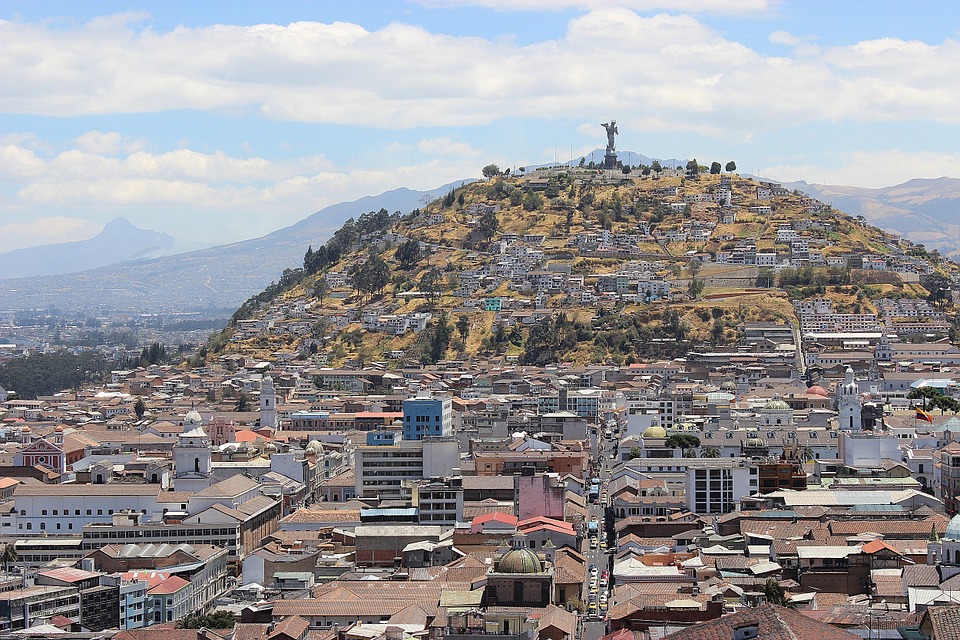
SITUATION SUMMARY: Ecuador Demonstrations and The State of Emergency
Thousands of protesters have been taking to the streets in Ecuador over the past ten days. While the unrest was initially triggered by the elimination of petrol and diesel subsidies, it has now developed into an anti-government demonstration. Protests in the capital have become increasingly violent, with clashes between the demonstrators and police, tear gas, stone-throwing and tyre burning. Thus far approximately 700 people have been arrested.
A state of emergency and curfew were declared on 3 October and 8 October. The President has also moved the seat of government from the capital to Guayaquil.
After a number of Red Cross volunteers and ambulance were attacked in several locations in recent days, Ecuador’s Red Cross has suspended paramedic and ambulance services.
Despite the violence, labour union members and indigenous people have also mobilized and marched peacefully. Additionally, thousands gathered in the city of Guayaquil to condemn the violence; many wearing white clothes and carrying white flags. Indeed, the level of violence has shocked many ordinary Ecuadorians. The military has also denounced the violence, appealing to Ecuadorians to do the same, stating that protests should not be used as a cover to carry out vandalism and other crimes.

SOLACE GLOBAL ANALYSIS
The unrest has resulted in a state of emergency and a curfew, with military personnel being deployed nationwide. Security forces also often use tear gas to disperse crowds. Further large scale demonstrations are highly likely over the next few days, especially in the Andean region.
The violence started last week after fuel subsidies were interrupted, a decision by President Moreno that has led to price increases. Initially, the unrest focused on transport workers but quickly spread to students and then to indigenous communities. The unrest represents an ominous sign for the government since
it was a similar wave of protests that led to the resignation of former President Lucio Gutiérrez in 2005.
However, in 2005, the military played the ultimate role in bringing down the president. As such, the military’s backing for Moreno is vital. Indeed, the president appears aware of history repeating and has announced publicly that the government is negotiating with indigenous groups.
Despite this, the political crisis shows no signs of ending any time soon. Labour leaders called for a general strike on Wednesday. However, it is not needed, economic activity in much of the country has already been ground to a halt by the unrest, looting, blockades and disruption. Additionally, Ecuador’s main oil pipeline, which runs from the Amazon region to Balao port on the Pacific ocean, has ceased operations due to indigenous protesters disrupted production facilities.
ADVICE
- Consider delaying non-essential travel to the country at this time.
- If in-country, avoid all demonstrations, as some have turned violent, and limit movements near key protest sites. Be prepared to stand fast and remain inside your hotel during peak times of unrest.
- Be aware that food and water shortages might increase the levels of crime, theft and looting. Further large scale demonstrations are expected over the next few days, especially in the Andean region.
- A curfew is in place, restricting movement between 20:00 and 05:00 in the Historic Centre in Quito and in other areas of strategic importance across Ecuador, including ports, airports, government buildings and energy infrastructure. Official documents will be required to access to ports and airports during this time frame.
- Ensure that you comply with the requirements of law enforcement and emergency measures.
- Monitor official sources via the ECU 911 emergency services be wary of unverified, unofficial information.
- Some international flights have been affected in recent days. Intermittent access to Quito International Airport has resulted in some cancellations and delays to domestic and international flights. You should check your flight status with your airline before travelling to the airport.
Oktoberfest Travel Advice 2019
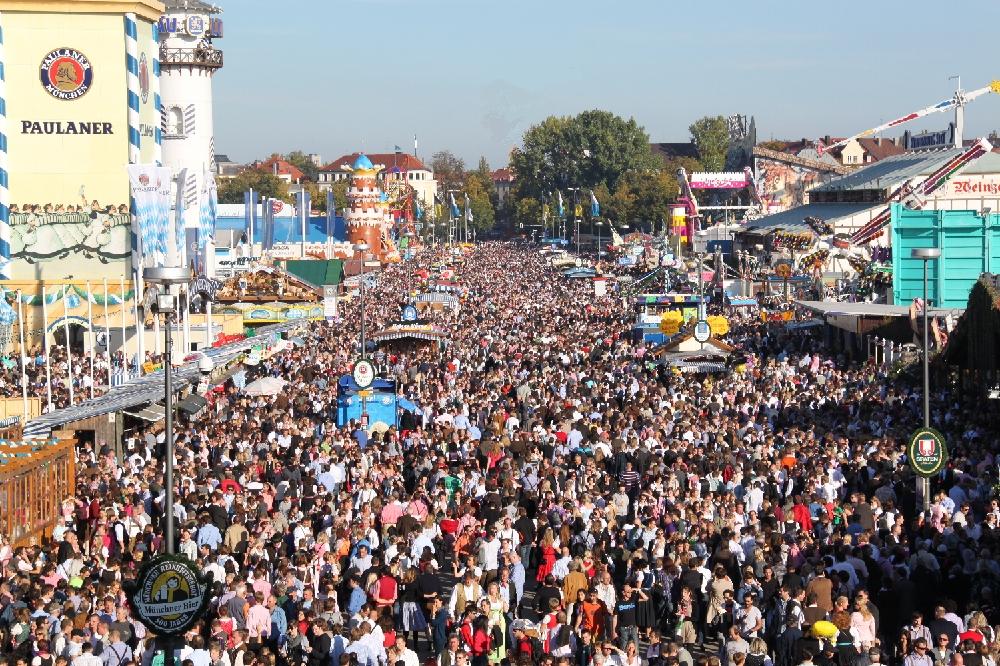
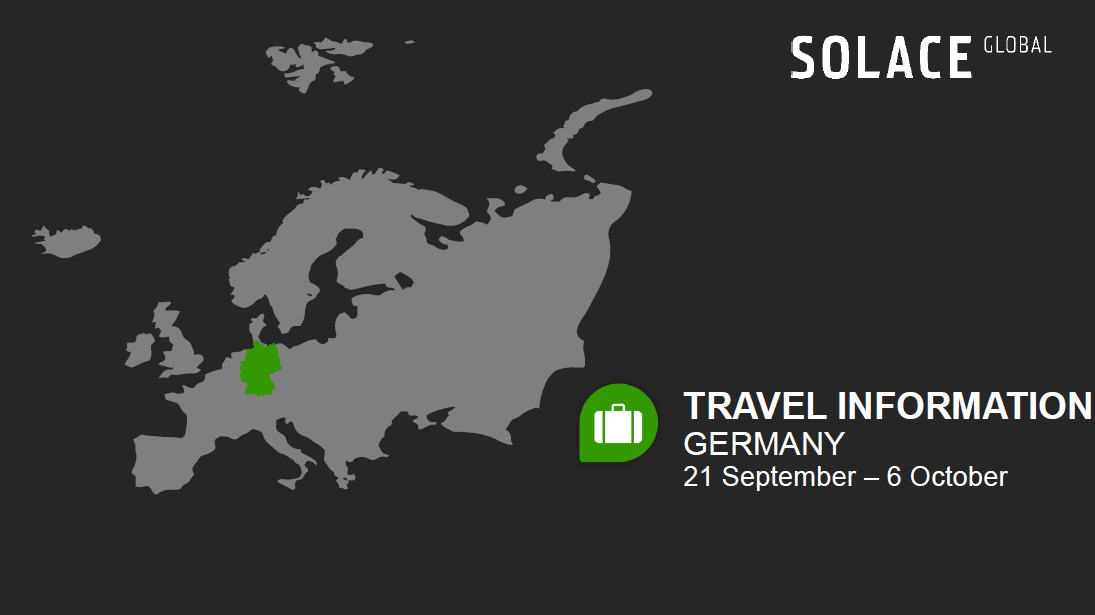 SITUATION SUMMARY
From 21 September to 6 October 2019, Munich and other major Bavarian cities are set to host the world’s largest Volksfest (or beer festival and travelling funfair). The annual folk festival runs from mid or late September to the first Sunday in October. The festival has been held every year since 1810.
The festival was first held to commemorate the wedding of Crown Prince Ludwig of Bavaria and Princess Therese of Saxony-Hildburghausen. This year will the 186th since the start of the celebration, which features many parades and live bands, as well as multiple fairground rides. Approximately seven million people visit the festival every year and in 2018, over 7.5 million litres of beer were consumed. The event has also become famous throughout the globe with similar celebrations held in London, UK, Blumenau, Brazil, Cincinnati, USA. This means its importance to businesses and to pleasure travellers grows year upon year.
Fortunately, despite the large consumption of alcohol and the high-profile nature of the event, crime tends not to be a major issue. Only low-levels of petty criminality are expected. It is also common for people to lose personal items, normally due to intoxication. In 2014, there was an incident of an individual jumping out of one of the rides and attacking the props, probably intoxicated.
Additionally, given the profile of the event and the cultural significance, terrorism remains a concern, although it has not impacted Oktoberfest since a bomb blast in 1980. The Oktoberfest bombing was a terror attack carried out by a German right-wing extremist. The blast killed 13 people and injured over 200, including the perpetrator.
SITUATION SUMMARY
From 21 September to 6 October 2019, Munich and other major Bavarian cities are set to host the world’s largest Volksfest (or beer festival and travelling funfair). The annual folk festival runs from mid or late September to the first Sunday in October. The festival has been held every year since 1810.
The festival was first held to commemorate the wedding of Crown Prince Ludwig of Bavaria and Princess Therese of Saxony-Hildburghausen. This year will the 186th since the start of the celebration, which features many parades and live bands, as well as multiple fairground rides. Approximately seven million people visit the festival every year and in 2018, over 7.5 million litres of beer were consumed. The event has also become famous throughout the globe with similar celebrations held in London, UK, Blumenau, Brazil, Cincinnati, USA. This means its importance to businesses and to pleasure travellers grows year upon year.
Fortunately, despite the large consumption of alcohol and the high-profile nature of the event, crime tends not to be a major issue. Only low-levels of petty criminality are expected. It is also common for people to lose personal items, normally due to intoxication. In 2014, there was an incident of an individual jumping out of one of the rides and attacking the props, probably intoxicated.
Additionally, given the profile of the event and the cultural significance, terrorism remains a concern, although it has not impacted Oktoberfest since a bomb blast in 1980. The Oktoberfest bombing was a terror attack carried out by a German right-wing extremist. The blast killed 13 people and injured over 200, including the perpetrator.
 SOLACE GLOBAL COMMENT
In 2016, security around the festival was tightened following a series of attacks throughout southern Germany, notably one in the Munich shopping centre attack perpetrated by a teenager that killed nine people in July 2016. This incident was preceded by a knife attack in Munich in May that resulted in one death and three injuries. The same security measures remain in place for this year’s edition of the festival.
The local authorities continue to improve security measures for the event. A new loudspeaker system has been installed to ensure that safety messages can be communicated effectively. There are also additional telephone towers in the area to ensure that the coverage remains constant and emergency services can contact each other and attendees effectively.
Transport
Local public transport maintains a full schedule during Oktoberfest. The subway system, the U-Bahn runs late into the night and it colour coded and numbered making it easier to move around. Buses operate in all areas of the city and are a safe way of travel. Ridesharing apps such as Uber are also commonly used, as are taxis.
Terrorism
There is no specific threat of terrorism targeted at the festival. However, due to its size and appeal to thousands of people from around the world, the threat of terrorism can not be dismissed. A security fence surrounds the site and security checks are known to be very thorough. Barricades will be placed around the perimeter of the venue to ensure that vehicles are unable to drive into crowds and there is a large security presence both uniformed and plain clothed.
CONTINUED…
One of the biggest threats to those attending the event tends to be self-inflicted: the German Red Cross assists at least 10,000 people per year for a variety of medical issues including dehydration and alcohol poisoning. Those attending Oktoberfest are advised to spread their drinking throughout the day, regularly consume water and eat plenty of food to soak up the alcohol. It is advised to walk around the festival site in order to get fresh air.
A key Oktoberfest safety tip for travellers who feel unwell at any time is that they should not hesitate, or be too proud to visit a recovery tent.
To guard against crime, organisers have placed a ban on all bags that have a volume of more than three litres. Bags are checked at all entrances and given a safety tag which changes colour every day to show they have been checked. Certain items are not allowed in the venue. This includes spray cans with harmful substances, knives, glass bottles or any other object that can be used to cut, slash or stab. Water bottles are also banned from the venue.
The threat posed by pickpockets and thieves is not as high as perceived. However, it is strongly advised to maintain situational awareness at all time and ensure your valuables are not on display where they can be easily stolen. Alcohol-fuelled confrontations are fairly common, therefore individuals are strongly advised to avoid any conflicts.
SOLACE GLOBAL COMMENT
In 2016, security around the festival was tightened following a series of attacks throughout southern Germany, notably one in the Munich shopping centre attack perpetrated by a teenager that killed nine people in July 2016. This incident was preceded by a knife attack in Munich in May that resulted in one death and three injuries. The same security measures remain in place for this year’s edition of the festival.
The local authorities continue to improve security measures for the event. A new loudspeaker system has been installed to ensure that safety messages can be communicated effectively. There are also additional telephone towers in the area to ensure that the coverage remains constant and emergency services can contact each other and attendees effectively.
Transport
Local public transport maintains a full schedule during Oktoberfest. The subway system, the U-Bahn runs late into the night and it colour coded and numbered making it easier to move around. Buses operate in all areas of the city and are a safe way of travel. Ridesharing apps such as Uber are also commonly used, as are taxis.
Terrorism
There is no specific threat of terrorism targeted at the festival. However, due to its size and appeal to thousands of people from around the world, the threat of terrorism can not be dismissed. A security fence surrounds the site and security checks are known to be very thorough. Barricades will be placed around the perimeter of the venue to ensure that vehicles are unable to drive into crowds and there is a large security presence both uniformed and plain clothed.
CONTINUED…
One of the biggest threats to those attending the event tends to be self-inflicted: the German Red Cross assists at least 10,000 people per year for a variety of medical issues including dehydration and alcohol poisoning. Those attending Oktoberfest are advised to spread their drinking throughout the day, regularly consume water and eat plenty of food to soak up the alcohol. It is advised to walk around the festival site in order to get fresh air.
A key Oktoberfest safety tip for travellers who feel unwell at any time is that they should not hesitate, or be too proud to visit a recovery tent.
To guard against crime, organisers have placed a ban on all bags that have a volume of more than three litres. Bags are checked at all entrances and given a safety tag which changes colour every day to show they have been checked. Certain items are not allowed in the venue. This includes spray cans with harmful substances, knives, glass bottles or any other object that can be used to cut, slash or stab. Water bottles are also banned from the venue.
The threat posed by pickpockets and thieves is not as high as perceived. However, it is strongly advised to maintain situational awareness at all time and ensure your valuables are not on display where they can be easily stolen. Alcohol-fuelled confrontations are fairly common, therefore individuals are strongly advised to avoid any conflicts.
UK Government Suspends Parliament
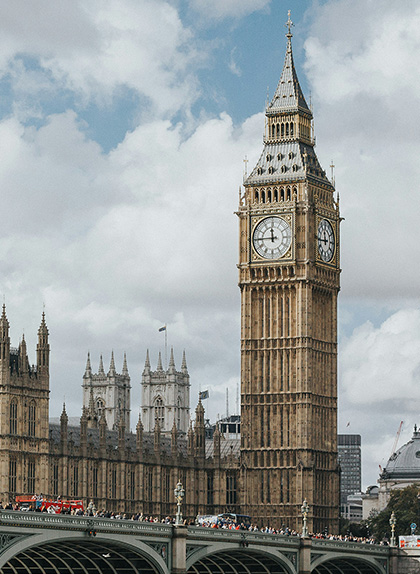
SITUATION SUMMARY
On 28 August 2019, the Queen of the United Kingdom approved Boris Johnson’s request for a suspension, or a prorogation, of UK parliament. The prorogue will be for 23 working days and is set to begin between 9-12 September until 14 October, four days before EU leaders are due to meet on 17 October for a final time before the Brexit date of 31 October.
Prorogation, unlike a recess which is voted on by parliament, is a decision that excludes the Houses. Parliament usually goes on recess for three weeks between September and October for the party conference season; however, there had been talk to cancel the break this year due to the urgency surrounding the Brexit deadline.
Johnson has stated that a Queen’s speech is due to take place following the suspension to outline his “very exciting agenda” in the latest update on Brexit.
However, many MPs, both pro- and anti-Brexit ones, have voiced their concern at the move which has been termed as a “constitutional outrage” and “damaging to democracy”.
SOLACE GLOBAL ANALYSIS The decision to shutdown parliament at this time is highly controversial as opponents argue that it will stop MPs being able to play their democratic part in the Brexit process, by constricting their ability to stop a so-called ‘no-deal’ Brexit; where Britain leaves the EU without a formal deal – with the majority of trade reverting to WTO rules.
Opposition MPs had announced they were due to attempt to block a no-deal Brexit using a parliamentary process. These MPs state that the prorogation is a deliberate move by Johnson to govern without parliament, an action considered dangerous within parliament. The suspension now leaves only a limited time that any such votes can take place, reducing options for those looking to block a no-deal Brexit.
Those in favour of Britain remaining a member of the EU, and even those in favour of leaving with or without a deal, have been critical. The European Parliament co-ordinator on Brexit, Guy Verhofstadt has stated “‘Taking back control’ has never looked so sinister”. Regardless, Boris Johnson has set out exactly what he promised to do when elected as leader of the Conservative Party; to deliver Brexit. And for now, that is what he intends to do.

WHAT COULD HAPPEN NEXT?
- It is highly likely that the government could face a no confidence vote when parliament sits in the first week of September. It appears that this may be a deliberate tactic by Johnson to force parliament into a no confidence vote.
- Should this vote succeed, there would be two possible outcomes; no government is formed within 14 days and a general election is required. Or, the second option; a new government consisting of a coalition of parties is formed. Many leaders, a back-bench Conservative, Labour Leader Jeremy Corbyn or Liberal Democrat Jo Swinson, are all potential candidates if an agreement can be made.
- Parliament may decide that they do not have enough time to bring the government down and instead focus on legislating against a no-deal.
- Finally, there could be an attempt, potentially from the Scottish court or by a group of cross-party MPs, to block the suspension of parliament.
- There could also be a combination of the above, or something unseen – a black swan event – with British politics now entering unchartered waters.
WHAT TO DO:
- Anticipate protests in city centers and outside of government buildings. There have already been reports of protests in Westminster, London on 28 August.
- If in the vicinity of any demonstrations or protests it is best to avoid large crowds. Although they may seem peaceful, violence and arrests could erupt at any time.
- Anticipate travel disruptions to any areas populated with demonstrators and plan accordingly.
- As it stands, Britain will leave the European Union on 31 October; without a deal, businesses should continue to prepare for this eventuality.
- Disruptions to supply chains and at airports is likely, though mitigation measures are being implemented. Be prepared for delays at borders and whilst entering and exiting the United Kingdom.
- Businesses in the UK, both large and small, should be up-to-date with the UK government’s guidance on the EU Exit found on the government website: https://www.gov.uk/business-uk-leaving-eu. Businesses outside of the UK should consult their own government websites for similar information.
JAPAN 日本 2019 RUGBY WORLD CUP

The 2019 Rugby World Cup is set to kick off on 20 September in Japan. This is the first time the tournament will be held in Asia, and outside of the traditional heartland of the Rugby Union. For many people, this will be their first experience of Japan and while one of the safest countries in the world, its culture is vastly different. Travellers are likely to find the cultural differences and the language barrier the greatest challenge whilst visiting the country. Despite this, there are some very real risks in Japan, these almost exclusively come in the form of environmental threats. The island nation faces numerous earthquakes and typhoons; however, the country’s infrastructure is well developed and prepared for such events – making only catastrophic, and rare, events a risk to those in the country.
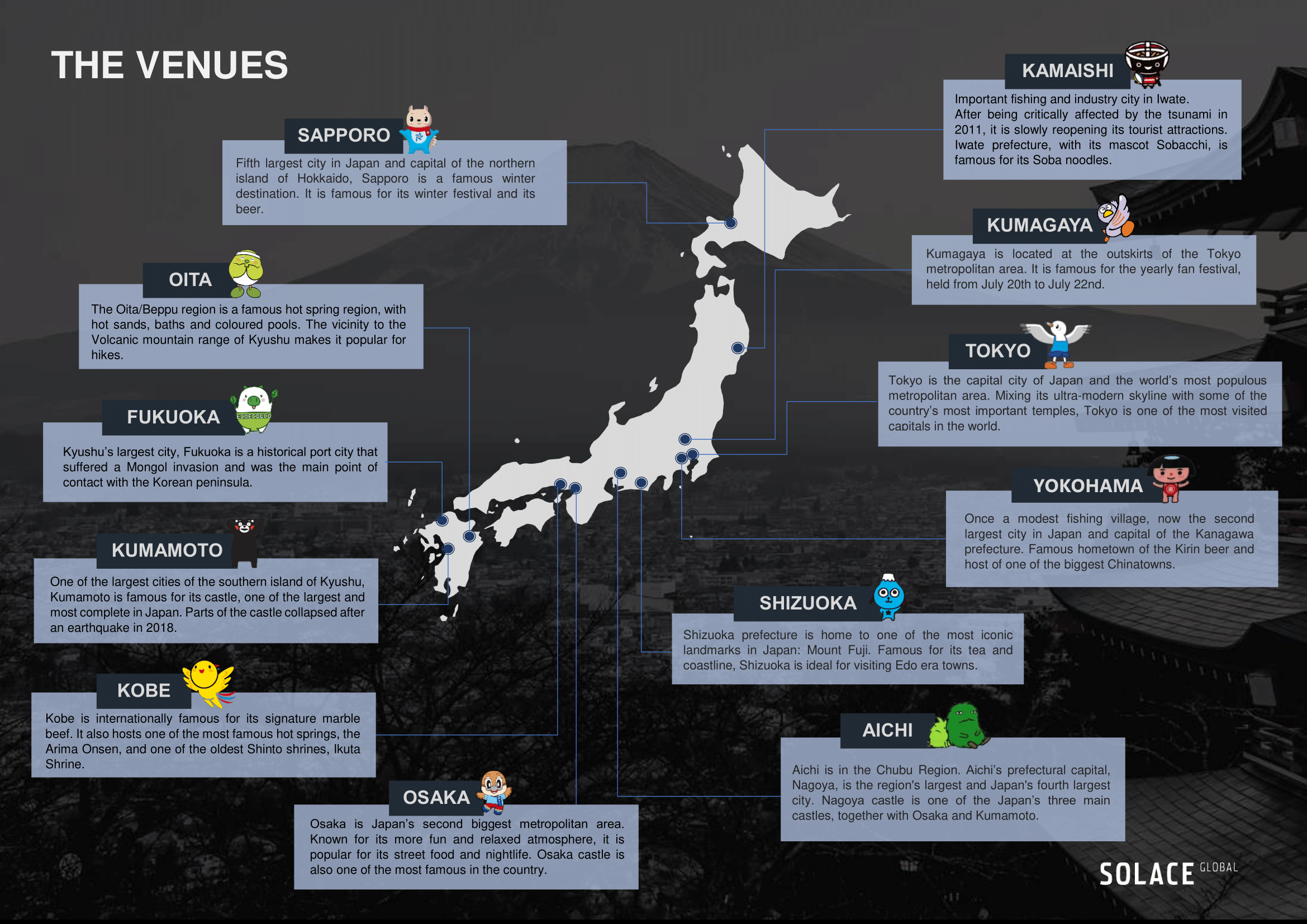
(Click the map to learn more about the tournament venues)
ENVIRONMENTAL RISKS
Japan is a safe country, the main risk to travellers visiting stems from environmental factors. The World Cup is set to begin at the tail end of the typhoon high season. The country is also one of the most seismically active in the world. Japan also possesses a number of active volcanoes; however, the risk of these impacting travellers remains low.
TYPHOONS
On average, Japan sees eleven sizable typhoons per year, with the islands of Okinawa and Kyushu normally being the most affected. Typhoons are tropical cyclones typical of the Pacific Oceans and they are characterised by strong winds, large waves and heavy rains. The landfall of a typhoon can cause infrastructural damage, disrupt travel – particularly flights and ferries – and sometimes evacuation orders by the local emergency preparedness authorities. While there are no matches, scheduled to take place in Okinawa, three of the twelve designated world cup stadiums are in Kyushu. Keeping an eye on weather forecasts is always advisable during the typhoon season to avoid being caught unprepared.
EARTHQUAKES
Earthquakes are a common occurrence across the country. Minor quakes strike the country almost daily and result in no damage and are often barely noticeable. Major quakes also occur with a frequency unfamiliar to most of the western world and can result in damage. However, Japan is at the forefront in the field of disaster preparedness and management, due to the country being so prone to natural disasters. Most buildings and infrastructure are built in accordance to stringent regulations and utilise the latest technologies in order to prevent damage and collapse during earthquakes. Most buildings are also equipped with emergency kits that include dry food, water and medical supplies.
Japan’s advanced knowledge of earthquakes and innovative solutions in the field of emergency response were developed in the aftermath of two great disasters, the Great Hanshin Earthquake of 1995, the Great East Japan Earthquake of 2011, coupled with smaller and recurring episodes. Moreover, all Japanese citizens are trained in evacuation procedures and most of them have first aid knowledge, which facilitates the preventative and reactive operations. The Japanese government has a system of early warning alerting, which would push out a notification on all devices and televisions in case of an earthquake, tsunami or ballistic missile test.
The largest recent quake was the March 2011 Tohoku earthquake. This megathrust earthquake’s epicentre was located off the coast of the Oshika Peninsula. The quake was the strongest to ever strike Japan, with a recorded magnitude of 9.1 and 7 on the Japanese Shindo (seismic intensity) scale. It was followed by a tsunami with waves of 10 meters (33 ft) in height – though waves of 40 meters were recorded in some areas. Up to 18,430 people are reported to have been killed or are still missing.
Japanese coastal areas are built to defend against tsunamis, all of which have been bolstered since 2011. As such, the majority of small tsunamis do not pose a threat to the major urban centres. However, as was the case in 2011, waves of 10 meters+ have the potential of overtopping the defences.
The island also has a number of volcanoes; however, these pose only a minor threat with the majority being dormant for the past decades.
OTHER RISKS
Japan is considered a very safe country, with crime rates among the lowest in the world. In addition to this, the Japanese law enforcement agencies have a high success rate in solving crimes that are carried out. Violent crime is also rare, although there is a significant presence of organised crime, often operating in and around entertainment establishments. However, members of criminal networks are unlikely to target foreign nationals unless provoked. Travellers should expect increased security measures and personnel during the duration of the world cup, further decreasing the risk of being a victim of violent crimes. Pickpocketing and petty theft remain the highest risk to anyone visiting Japan, particularly in large crowds and in the vicinity of tourist landmarks.
The risk of terrorism is low in Japan and, while there have been several highly publicised mass stabbings, these remain very rare.
The police in Japan have wide-ranging powers and they are lawfully allowed to hold potential criminals for up to 23 days, even for minor offences. Indeed, should you be charged with a crime, you are likely to be held, without bail, until your court date.
CULTURE
While visiting any country, it is important to be aware of cultural and religious norms and habits. The majority of people in Japan are friendly and hospitable, but they will tend to remain reserved. As such, loud and boisterous behaviour, especially in public, is uncommon. This is important to remember when the emotions of the world cup are running high in the 78th minute of a match.
Dressing conservatively is important to avoid offending locals, particularly if visiting areas considered sacred or of high historical importance.
Manners are also very important among the Japanese population, making it important to be aware of the basic rules.
Japanese people often greet each other by bowing, which is also a way to show respect. It is also customary to exchange business cards, which should be received with both hands and not immediately stored away, as that is perceived as disrespectful. During formal business dinners, keeping the cards on the table is also common.
Public displays of affection are not common in the country and it is better that visitors avoid them. Keeping phones on silent whilst on public transport is also the norm. Avoid taking calls or having loud conversations on any form of public transport.
Smoking in public and littering are frowned upon. Indeed, littering is seen as a sign of disrespect and could get you in trouble. It can also be frustrating when out and about as dustbins are few and far between; the majority of Japanese people take their garbage home with them rather than dispose of it when out. Smoking is mostly reserved for bars and pubs rather than the streets, where it is only allowed to smoke in designated areas.
LGBT RIGHTS
LGBT rights in Japan are relatively progressive by Asian standards. This is partly due to Japan’s culture and major religions not having a history of hostility towards homosexuality. The majority of Japanese people support the legalisation of same-sex marriage and the younger generation are widely supportive of LGBT rights. However, Japanese society remains inherently conservative, where public displays of affections or sexual preference are considered mostly inappropriate.

LOCAL TRAVEL
Travelling around Japan is simple once you have got used to the country’s public transportation network. For foreign nationals visiting the country, you can pre-buy Japan Rail Passes, which gives unlimited travel on all of Japan’s long-distance rail services. Be aware that due to the world cup, many trains, are likely to be fully booked, with seats pre-booked. Buying a rail pass before you arrive is highly recommended if you are planning to use the train a lot.
The country has one of the best transport infrastructures in the world with high-speed trains, extensive motorways and numerous large airports. However, it is important for those visiting for the first time, or even seasoned travellers, to be aware that the public transport system can be confusing. It is recommended that travellers schedule additional time for travel, as buying tickets and finding the right platform is likely to be challenging, particularly in large transportation hubs such as Tokyo and Osaka station. If in trouble, it is always a good idea to ask the staff, which will be able to guide you to the right destination. Trains are used by a large number of people for daily commutes, thus consider avoiding morning and evening rush hours if unsure about how to navigate the stations. Be aware that the fast trains – the shinkansen or also known as the bullet train – need a separate ticket and depart from specific platforms.
In major urban areas, navigating can take some getting used to but while signposts are in Japanese, the vast majority are also written in English. As such, those travelling for the World Cup, both for leisure and for business, should have no trouble getting from their accommodation to the venues. If uncomfortable using local trains or buses, taxis remain a safe and affordable option – just remember not to touch the car doors, as they are fully automated. Travel between cities, be it via plane, train or automobile is unlikely to present any significant risk. It is just vital you allow yourself plenty of time to navigate stations, double-check platform numbers and, where possible, simply ask for directions.
Foreigners can drive in Japan with an International Driving Permit; though, given the high quality of public transport, it is advised that you use other forms of transport.
HEALTH
Japan’s healthcare system is among the best in the world. Even hospitals in rural areas and smaller clinics are well equipped and staffed by highly trained medical professionals. However, travel insurance is a must, the cost of treatment in Japan is high and payment will be expected in full and upfront. As such, there can be delays in treatment while insurance is verified. Additionally, many doctors do not speak English, making communicating difficult.
Despite being held in autumn, the host cities will still be warm, with the exception of the northern cities of Sapporo and Kamaishi, which will be much cooler thanks to their more northern locations. Keeping hydrated and protecting yourself from the sun is important whilst travelling.
PRESCRIPTION DRUGS
The laws surrounding prescription medication in Japan is much stricter and different to those in Europe or Australasia. This includes the use of items such as Vicks Inhalers, allergy medications and medication containing Pseudoephedrine. Indeed, some over-the-counter painkillers like those containing Codeine are also illegal and foreign nationals have been detained and deported for offences.
As such, if you are travelling to Japan with prescription medication, be aware of the possible restrictions on any said medication and even if what you are taking is legal, ensure that you have your prescription from your doctor with you at all times.
There is also a zero-tolerance policy towards all drugs in Japan. The penalties for possession, the use or the trafficking of illegal narcotics can result in long jail sentences and very heavy fines.

United States of America – Two Mass Shootings in 24 hours





